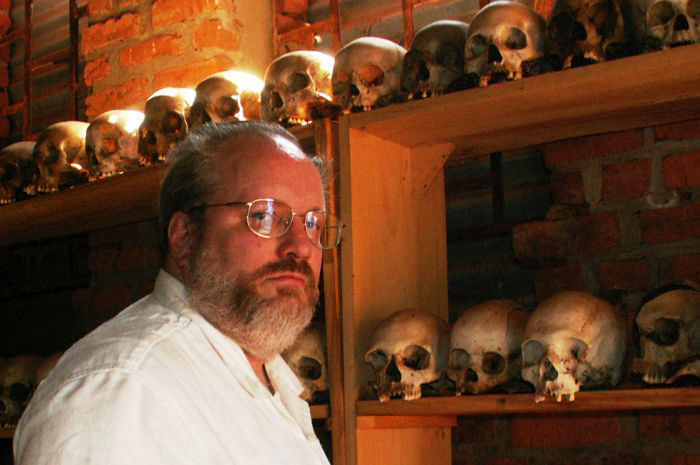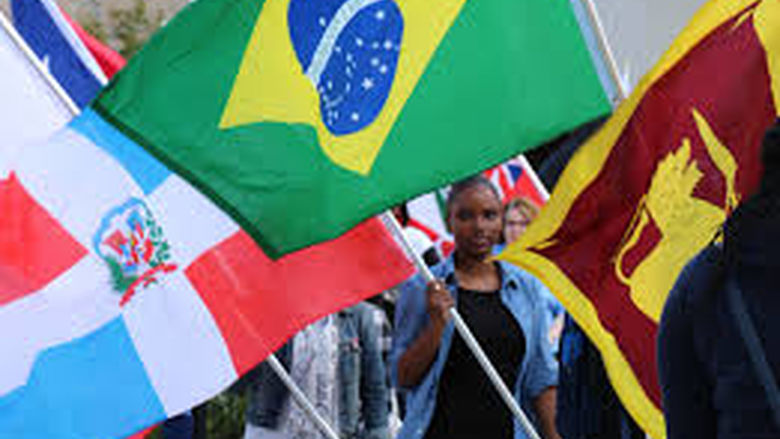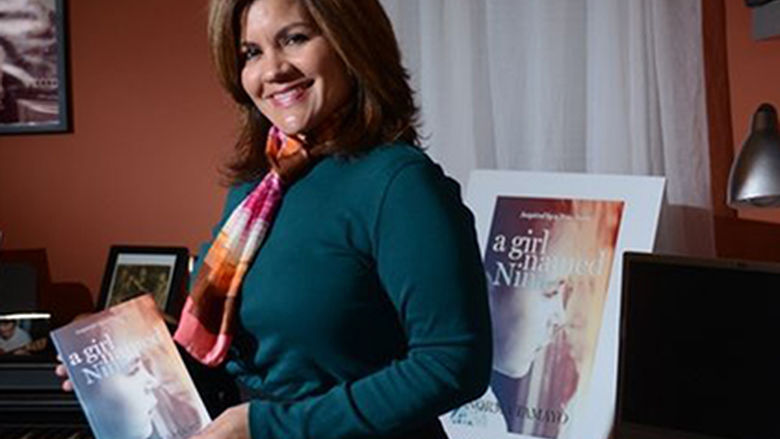READING, Pa. — What is a myth … legend, fairy tale, parable, folklore, imagination or pure fiction? It could be all of those things and it somehow sounds mystical and even exciting. But myths can have another darker, more dangerous and life altering side: They can engender falsehoods, idealized conceptions that are fallacies. Whichever concept you choose to accept, myths can change history, transform a culture, and impact those living in that society. Such is the case with Rwanda, according to Randall Fegley, as outlined in his new book, "A History of Rwandan Identity and Trauma: The Mythmakers’ Victims" (Rowman & Littlefield, 2016).
“Trauma is often associated with history defining events,” according to Fegley, associate professor of history and politics at Penn State Berks. “The impact can be felt for generations to come even beyond those who can vividly remember them.”
Fegley’s interest in mass trauma is deeply rooted in the fact that he lived in the very volatile country of Sudan in the early 1980s, and it further peaked when he began visiting Rwanda many years later.
As a researcher, Fegley evaluates how local communities cope with trauma they have lived through or remember. Originating with studies of the Holocaust, such studies can be a daunting task that often involve multiple collaborations, very extensive and exacting research, and travel to countries far and wide.
In 2005, Fegley visited Rwanda for the first of his four visits to explore his interest in mass trauma. During these trips, he was able to ascertain that Rwandans have unique and unusual difficulties in coping with past myths, and therefore in developing a healthy positive identity. In fact, as a result of the 1994 genocide, the subject of history was not taught in Rwandan schools for 14 years until a consensus could be reached on how to fully explain this country’s very traumatic past.
“I was able to interview education officials, teachers, parents and students about Rwanda’s national history curriculum,” said Dr. Fegley. “As I tried to untangle the complicated web of narratives, produced by both the Rwandans and foreigners, about the country’s past and present, my book, 'A History of Rwandan Identity and Trauma: The Mythmakers’ Victims,' was born.”
This book introduces readers to the concept of myth and trauma as experienced by Rwandans and how Rwanda is viewed by the outside world. Each of its five chapters takes you through the country’s history and trauma step by step.
The political and cultural development of Rwanda in the early days is the focus of Chapter 1, which touches on the effects of German and Belgian colonialism and the ultimate introduction of Christianity.
Hutu Power and ideology, the end of Tutsi dominance, Belgian domestic politics, early genocide, the development of the Rwanda Patriotic Front and the 1990 invasion are the focus of Chapter 2. This chapter also offers a review of films, books and publications that brought the plight of Rwanda to the attention of the general public and, in a twist of fate, created new myths.
In Chapter 3, Rwanda’s impressive record of economic development is discussed, as well as post genocide reconstruction and attempts to bring justice to the country, particularly through local courts and the International Criminal Tribunal for Rwanda.
“I then went on to discuss and dissect the process of creating school curriculums,” noted Fegley. “A very difficult task, as how do you explain the past atrocities and new myths that have evolved? In Chapter 4, I tackled that challenging topic.”
The fifth and final chapter brings it all home, suggesting conclusions on the effects of mythologies and the destruction they have wrought in Rwanda. But that is not the whole story — countries such as Burundi, Ethiopia, South Africa, Taiwan, Canada, Belgium, Switzerland, Singapore and the United States have all dealt with divided societies. Fegley draws comparisons with these societies and offers insight to their approaches in dealing with the past.
"A History of Rwandan Identity and Trauma: The Mythmakers’ Victims" is a stimulating read, posing many questions applicable to people who have experienced a challenging road to growth and freedom: Do we heal? Do we ever really learn from history? Does the past pull us closer together or tear us apart?
Fegley’s goal is to create an understanding of mass trauma and its effects on human dignity. His book and other writings catalog what works in rebuilding, healing and ultimately reconciliation. This research will enable others in the fields of psychology, political science, education, museum studies, sociology and humanitarian advocacy to pursue further studies and application into specific cases and methods.
Fegley established Penn State's Rwanda Internship Program in 2006.






